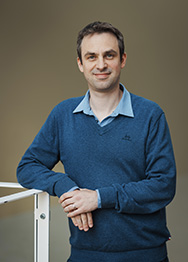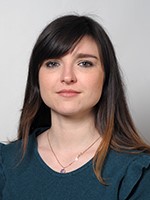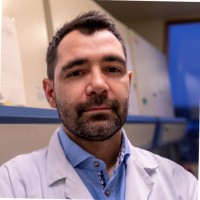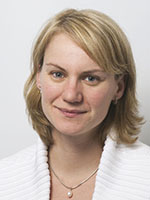This year, the Norwegian Cancer Society is allocating NOK 220 million to 28 top researchers, nine of whom carry out their research here at the Faculty of Medicine. The funding originates from Norwegian people who buy pink ribbons, pay their membership fees, make bequests and give gifts.
The funding from the Norwegian Cancer Society represents an invaluable contribution to Norwegian cancer research.
“We are extremely pleased to see that our researchers are having such an impact. These allocations are a testament to the Faculty’s strong position in this field of research. We would like to congratulate all those who have been allocated funding,” says Jan G. Bjålie, Dean of Research.
This year, the Norwegian Cancer Society also prioritised allocating funding to younger researchers.
“Established Norwegian researchers operate at such a high level that even the greatest talents traditionally struggle to succeed in the competition for funding. We are now ensuring that this group get the boost they need,” explains Ingrid Stenstadvold Ross in connection with the current allocations.
“This is a sensible approach on the part of the Norwegian Cancer Society that also confirms our impression of the society as an energetic and innovative organisation,” the Research Dean says. Read more in the Norwegian Cancer Society's announcement of this year's allocations (in Norwegian).
The Faculty of Medicine projects that received funding
More knowledge about cancer: New knowledge leads to new opportunities. We aim to find the answers to how cancer occurs and develops.
NOK 7,988,000 awarded to Marieke Lydia Kuijjer (NCMM)
Project: Precision Network Medicine for Treatment Stratification of Metastatic Breast Cancer.
“In summary, the proposed project will help identify the mechanisms that drive breast cancer metastasis and demonstrate the potential of precision network medicine in the event of metastatic disease.”
See Marieke Lydia Kuijjer's personal presentation.
NOK 7,529,000 awarded to Anthony Mathelier (NCMM)
Project: Characterisation of the transcription factors that drive the deregulation of the gene regulation programme through aberrant DNA methylation patterns in cancer cells.
“Our approach will shed light on the reconfiguration of the gene regulation network as driven by abnormal DNA methylation patterns, potentially highlighting new biomarkers and therapeutic targets.
See Anthony Mathelier's personal presentation.
NOK 7,968,000 awarded to Aurelie Bellanger (IMB)
Project: Investigating the role and prognostic value of nuclear lamin isoforms in breast cancer.
“In this research project, we will identify all of the family members of lamin and count them in breast cancer tumours. We will also determine which of these protect the nucleus and identify those that contribute to malignant breast cancer.
See Aurelie's Bellanger's personal presentation.
NOK 8 million awarded to Biswajyoti Sahu (NCMM) 
Project: Dissection of the epigenetic plasticity that drives pancreatic cancer for precision genomics.
“Inflammation is one of the non-genetic factors known to increase the risk of cancer. The purpose of this project is to understand, at a molecular level, how inflammatory signals interact with other regulatory signalling pathways and oncogenic mutations to drive the development of pancreatic cancer.” See Biswajyoti Sahu's personal presentation.
NOK 8 million awarded to Nicola Pietro Montaldo (Klinmed)
 Project: Telomerase Template Termination. “The project aims to translate its findings to a therapeutic application. We recently showed that a lack of single-stranded monofunctional uracil DNA glycosylase 1 (SMUG1) leads to defects in RNA quality control, which affects the stability of the telomerase RNA component, producing telomere dysfunction and cell death (unpublished data).
Project: Telomerase Template Termination. “The project aims to translate its findings to a therapeutic application. We recently showed that a lack of single-stranded monofunctional uracil DNA glycosylase 1 (SMUG1) leads to defects in RNA quality control, which affects the stability of the telomerase RNA component, producing telomere dysfunction and cell death (unpublished data).
See Nicola Pietro Montaldo's personal presentation.
NOK 8 million awarded to Harald Alfred Stenmark (Klinmed)
Project: Simaphagy against cancer. "We have evidence that simaphagy (communication between cells) is incapacitated in subgroups of frequent cancers, such as lung cancer and prostate cancer, and in this project we will investigate the importance of simaphagy in preventing cancer from developing. We will also investigate the possibility of switching on simaphagy in cancer cells so that they lose their malignant properties.”
See Harald Alfred Stenmark's personal presentation.
NOK 8 million awarded to Ragnhild Eskeland (IMB)
 Project: EPICSARC: Epigenetic mapping for more targeted treatment of soft tissue sarcomas. “Our focus is on identifying the epigenetic factors involved in the development of liposarcomas and testing the chemical and genetic inhibitors of these factors in patient cells. The long-term goal is to improve treatment for every patient.”
Project: EPICSARC: Epigenetic mapping for more targeted treatment of soft tissue sarcomas. “Our focus is on identifying the epigenetic factors involved in the development of liposarcomas and testing the chemical and genetic inhibitors of these factors in patient cells. The long-term goal is to improve treatment for every patient.”
See Ragnhild Eskeland's personal presentation.
NOK 8 million awarded to Kay Oliver Schink (Can-Cell)

Project: "Drink or drive" – Regulation of cell invasion and metastasis by macropinocytosis. “We want to investigate why cells decide to migrate and form metastases. Are low nutrients a trigger for cells transitioning to invasive cell migration? How do cells "notice" if they have enough nutrients? We will identify key proteins that regulate the process and investigate how these work when it comes to identifying potential drug targets.”
See Kay Oliver Schink's personal presentation.
A better life with and after cancer: Cancer makes life difficult. We must become better at treating everyone and ensure a well-functioning cancer pathway.
NOK 8 million awarded to Hanne Cathrine Lie (IMB)
Project: Psychosocial, communicative, ethical and legal aspects of testing for genetic predisposition to childhood cancer (PROTECT-CARE). “Testing of genetic predisposition to childhood cancer is increasingly used in clinics, but there is limited research on the subject. Knowledge of psychosocial, ethical and legal challenges associated with such testing is essential in order to ensure valid consent and avoid an increased burden on families in crisis.”
See Hanne Cathrine Lie's personal presentation.
